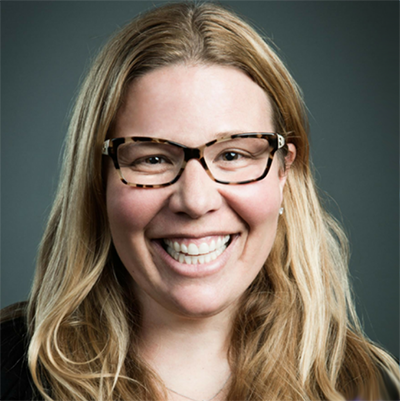
The driving force behind Salesforce’s $8.7M commitment to closing the gender wage gap, Leyla Seka built AppExchange from its earliest days, served as General Manager of Desk.com and then Executive Vice President of Mobile and was one of the most senior female leaders in Salesforce company history. In a rare Girl Geek X interview, Leyla recently dished out some much-needed advice for working women: “always ask for more.”
There’s an element of luck to success.
When asked how she got to where she is in her career, Leyla was quick to admit that luck played a role in her success. “Anyone that says they’re successful without acknowledging the luck of being at the right place at the right time, I think is a bit too much of a narcissist.”

“I also worked my butt off and I pushed,” she added. “I just didn’t settle for anything. I just pushed, and pushed and pushed.”
“A lot of it was really, really hard, but it was totally worth it. I don’t sit around and wish or wonder about what if I had asked for this or what if I had asked for that anymore, which is a nice change.”
Despite her success, over time, throughout many companies and throughout her career, she had the sense that the men made more money. It wasn’t something she’d confirmed or had sophisticated research to back up — just a feeling.
Then Salesforce gave her the opportunity to run their Desk.com division. “It was probably the best thing I’ve ever done in my career,” she said, “I had so much fun. I had a team of four people and we grew like crazy.”
The first two years included unbelievable growth. Leyla had a team of four people: two men, two women. When bonus time rolled around, she fought hard to get a lot of money for everyone on her team.
“I really just thought they all deserved an equal amount, so I gave them all the same and I gave them a lot — a lot more than any of them had ever earned before. I worked hard.”
Then she had meetings with the people on her team. Her assistant set up the meetings, and it just happened to be the two women that went first.
In the first meeting, she shared that the woman receiving her bonus was appreciative and overjoyed, thanking her and gushing over the amount.
Then it was the second woman’s turn, and her reaction was similar.
When she told her first male team member the amount of his bonus, she was shocked to hear his response: “I want more.”
Leyla was in disbelief. “I thought in my head, ‘What? What? What?! How could you want more? You’ve never gotten this much!’ But I thought ‘Okay, I’ll ponder that.'”
Then the second man who was akin to a COO and her partner in running the business — her primary partner — was told his bonus amount. He looked right at her, and said, “I want more.”
When Leyla paused to ask him what was going on, he didn’t hesitate. He quipped, “We’ve always been taught to ask for more.”
There was no uncertainty, no doubt or reluctance in his voice. He didn’t shy away from it. He wasn’t scared or embarrassed to ask, and he certainly didn’t fear her response.
Women haven’t been conditioned to ask for anything, let alone MORE.
“It was sort of like someone slapped me across the face because I thought of all the times that I had gotten a bonus or promotion, or a job, or any of these things and I had been like, ‘Thank you,’ because that was the way my mother had raised me.”
Women aren’t accustomed to pushing for more. We’ve been told that it’s “unladylike,” and that NO means NO — in EVERY situation.
We don’t question the seemingly “generous” salaries we’re offered, as long as they’re close to or slightly above what we earned previously. We don’t asked for the bigger bonus when we put in more work, and we often don’t ask for the raise or promotion as our responsibilities increase.
Women need to start asking for more, because men already are — and they aren’t second-guessing themselves about it.
Around the same time Leyla was having this realization, one of her friends was promoted within Salesforce’s HR department. After many discussions on the topic, they scheduled a meeting with their boss, Salesforce CEO Marc Benioff, and joined forced to make a presentation that questioned pay disparities at Salesforce.
In their presentation, they noted that addressing the wage gap could be very expensive for the company, but now that they’d become aware of it, they felt strongly that it needed to be fixed.
Leyla stressed that Marc Benioff is an amazing ally and someone that’s not afraid to do great stuff, so he was like, “Go for it. Do it.”, she said.
They completed the audit, and many amazing things have come from it: it led to Salesforce creating a position for a Chief Equality Officer, the Office of Equality, hosting the first Women’s Summit, and they’ve paid over $8.7 million to reduce the wage gap.
Salesforce has made incredible progress… but it wouldn’t have happened if no one had asked.
In a conversation with former Salesforce SVP of Product Management Jennifer Taylor, who now serves as Head of Products at Cloudflare, both women lamented some of the opportunities they and others missed because they simply hadn’t asked or pushed hard enough.

“I often find when I’m working with people, whether it’s men or women, people sometimes forget that hearing ‘no’ is the beginning of a conversation,” Jennifer shared. “If I had gotten up and walked out of a room every time I heard a no, I think I would have missed a lot of opportunities for growth.”
Leyla in part credits Salesforce’s culture for teaching her the valuable lesson: “Salesforce is a company that definitely teaches us all to push, to keep trying for the next goal. And I do think it’s so funny how many things I didn’t ask for that I would have gotten — and once I did ask, I did get.”
“The dialogue we have inside of our heads often hurts us more than what’s actually going on.”
Jennifer’s closing remarks certainly left an impression on this Girl Geek: “My advice is to ask and put yourself on that journey. Take those risks in asking, because you will learn and grow no matter what the response is.”
Leyla wrapped up the conversation with her own poignant advice for individuals working everywhere, and especially those working in tech leadership roles: “You have a platform, whether you think you do or you don’t. I would actually even challenge you further to ask, how are you using your platform to help people? Are you sponsoring a woman of color, are you trying to mentor a woman of color, are you thinking even beyond just our own fight? Equal pay is super important, but the work I’ve done with BOLDforce [Black Organization for Leadership and Development at Salesforce] in many ways is probably some of the most cutting edge and interesting stuff we’re doing, because we’re really trying to tackle the notion of allyship inside of corporate America.”
“We all can be allies, there’s always someone that can use your help, so it’s important to give that forward. That really helps you find your own path as well.”
The full transcript and video interview these excerpts were taken from is available here.
To hear more from Leyla Seka and other women who are passionate about having a positive impact on the evolution of America’s corporate landscape, check out the dozens of tech talks and interviews shared on the Girl Geek X YouTube channel, and subscribe to the Girl Geek X newsletter.
About the Author
Amy Weicker is the Head of Marketing at Girl Geek X, where she helps companies hand the mic to hundreds of women in tech across 40+ tech talks & dinners in the San Francisco Bay Area each year. She previously ran marketing at SaaStr, where she helped scale the world’s largest community and conference for B2B SaaS Founders, Executives and VCs from $0 to $10M. She also served as Director of Marketing at Sales Hacker, Inc. (acquired by Outreach) which helps connect B2B sales professionals with the tools, technology and education they need to excel in their careers.


